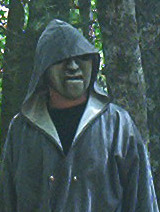The Divine
The gods of Ashriya are very real, of this there is no doubt. Their power and influence has rippled throughout history, for better or worse. To some, they serve as a beacon of inspiration and hope; for others, an excuse to subjugate those who think differently than them.
Characters may choose to have faith in a Divine power. This requires a character to roleplay the tenets inherent to the deity of their choosing. How a character’s piety is portrayed will decide which of endless possibilities will befall them. You may upset your god when you mean to appease. You may insult another god while trying to serve your own. You may be a dutiful servant, but your god chooses not to acknowledge you. One day, the god may grant you a Divine power, and the next day, that power is gone. Are you being tested by your god, or have you brought offense to them? If you expect or demand too much of your god, you may find punishment looming. The gods are fickle.
The religions of Ashriya are as diverse as its inhabitants. However, all gods’ motives are beyond the ken of mortals and some devout followers have never known the touch of their god. Others, who have only casually shown fealty to a divinity, have been blessed in ways both incredible and beautiful. Why this is the case is not well understood. Some claim that it is because there is a singular way to worship any given god, but the vast majority of theologians, and even worshipers of a god, believe that there are many paths to worshiping every god; even the most devoted followers who have been blessed by their deities debate among themselves which is the best way to honor their god.
In Ashriya, ten gods usually wield greater power than any others at a given time. These gods are known as “Seated” and occupy the Ten Thrones in the Hall of Eternity. In recent history, these Seated gods were known as “The Nine and One Gods,” as The One is considered by many to have a special place amongst the gods. In current times it has become more common for less than 10 gods to be Seated, and many people have simply started to refer to the Seated gods as “The Seated Gods.”
There is no defined process for how a god may be Seated, or conversely, Unseated. Most people's understanding is that for a god to be Seated, there must be an available Seat, and the god must be “strong enough”. There is no good manner of measuring a god's strength; those who wish for their god to be Seated must simply continue to try and strengthen the god. If followers believe their god is strong enough to take a Seat, they often perform a largely organized Rite to help their god take the final step.
Most theologians agree that the most common way for a person to empower a god is to spread the faith of the god. For some, this means espousing their views on their god to non-followers, in the hopes of being able to garner interest in their deity. Others consecrate shrines or temples in the name of their god, allowing their divinity to be felt by mortals. There is a correlation between the number of followers of a Divine, and their presence among the Seated. However, the number of faithful to a particular deity is certainly not the only factor; the god Death has notoriously few devoted followers at any given time, but has almost always retained His position as a Seated god throughout recorded history.
During the Breaking of 65AR when all the world’s energies shifted and changed, an unprecedented event occurred: all the gods were Unseated. With the Surges, which have been compared to The Breaking in many ways, not all gods have been Unseated, but some gods have lost their seats. During the First Surge in 161AR, Meserias and Baldoria both fell from power, becoming Unseated in the chaos of the event. Death and Simone are the only gods to have retained their Seats through each Surge. Alongside them, only Zinaar also maintained His Seat through the Fifth Surge. Though The One was Unseated in the Fifth Surge, He has been Seated once more in the year since that event. Meserias was also Seated shortly after this most recent Surge. At this time there are still five empty Thrones in the Hall of Eternity.
| Throughout all records of Ashriya, there has been mention of the Grey Messengers. They are commonly considered to be messengers of the gods, channeling the will, and sometimes even the voices, of the gods to the people of the land. Few are foolish enough to strike at them, but those who do suffer the consequences for the rest of their lives if their lives aren't immediately taken. The Grey are often merely standing and watching the goings on of the world and it is thought that they are sending their knowledge back to the gods who can see and hear through the Greys' eyes. |  |

